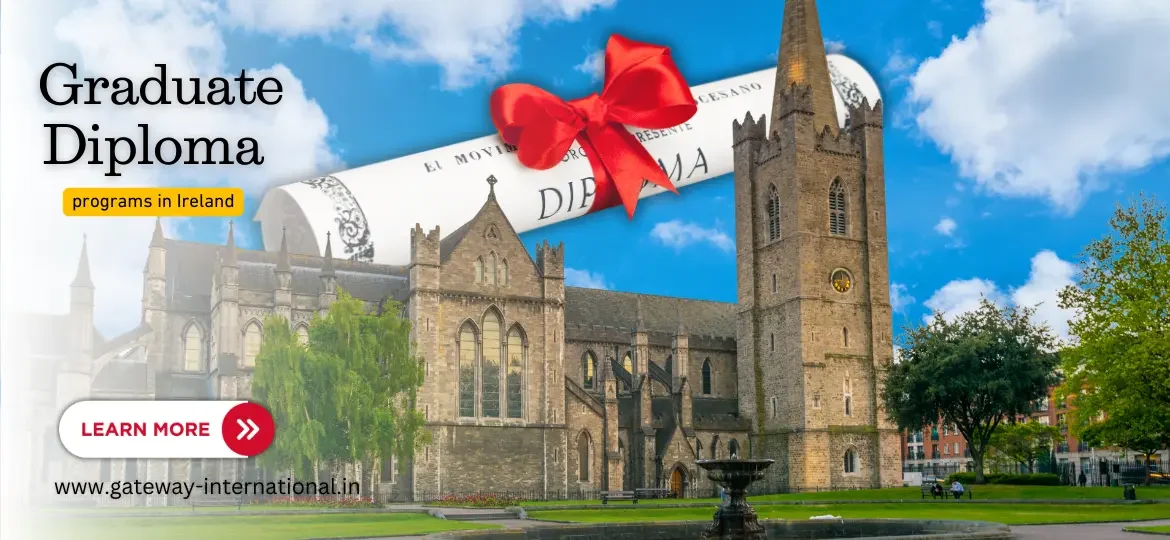
Why Pursue a Graduate Diploma in Ireland?
Are you considering furthering your study abroad? Look no further than Ireland! With its rich cultural heritage, top-notch universities, and vibrant student life, Ireland offers an exceptional academic experience for international students. Among the many educational opportunities available, pursuing a Graduate Diploma in Ireland can be a rewarding choice. Let’s delve deeper into why studying for a Graduate Diploma in Ireland is an excellent option for your academic and professional growth. The dynamic landscape of global education, Ireland stands out as a beacon of academic excellence, offering a myriad of opportunities for international students seeking to enhance their skills and qualifications. Among the various educational pathways available, a Graduate Diploma in Ireland emerges as a promising avenue for individuals looking to broaden their horizons and embark on a rewarding career journey. Read More: Study Abroad Without Taking IELTS 2024What is a Graduate Diploma?
A Graduate Diploma is a postgraduate qualification that provides students with specialized knowledge and skills in a particular field or discipline. It is designed to build upon the foundation of undergraduate education or professional experience, offering a focused curriculum that equips individuals with the expertise required to excel in their chosen field. In Ireland, Graduate Diplomas are offered by universities, institutes of technology, and other higher education institutions, catering to a diverse range of academic and professional interests. Read More: What Should I Have If I Want to Study in the USA?Benefits of Pursuing a Graduate Diploma in Ireland
- Academic Excellence: Ireland boasts a reputation for academic excellence, with its universities consistently ranking among the top institutions worldwide. Pursuing a Graduate Diploma in Ireland ensures access to world-class education facilitated by renowned faculty members and state-of-the-art facilities.
- Industry-Relevant Curriculum: The curriculum of Graduate Diplomas in Ireland is carefully crafted to meet the evolving demands of various industries. Whether it’s business, technology, healthcare, or the arts, students can expect to engage with cutting-edge concepts and practices that are directly applicable to their chosen field.
- Enhanced Career Prospects: With a Graduate Diploma from Ireland, individuals can significantly enhance their career prospects both domestically and internationally. Employers value the specialized skills and knowledge acquired through postgraduate education, making graduates highly sought after in the job market.
- Immersion in a Vibrant Cultural Landscape: Beyond academics, pursuing a Graduate Diploma in Ireland offers the opportunity to immerse oneself in a vibrant cultural landscape. From the bustling streets of Dublin to the serene countryside, Ireland’s rich heritage and warm hospitality create an enriching experience for students from all walks of life.


